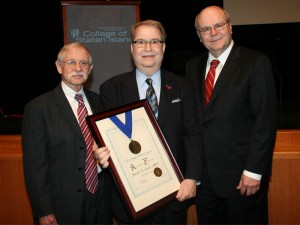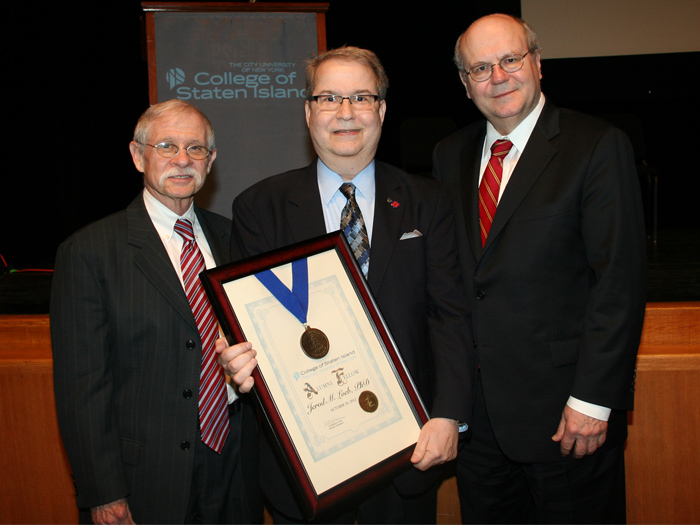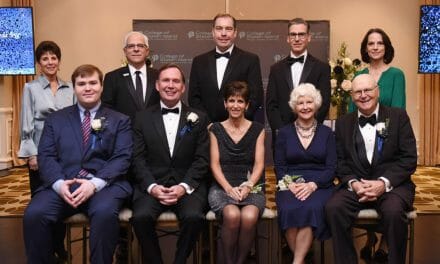
L-R: Interim Provost and Senior Vice President for Academic Affairs Dr. Fred Naider, Dr. Jerod Loeb, and Interim President Dr. William J. Fritz
The College of Staten Island welcomed its first-ever Alumni Fellow, Dr. Jerod Loeb ‘71, to campus in a day that capped off with a lecture by Dr. Loeb on the state of healthcare in the U.S.
Dr. Loeb is Executive Vice President of The Joint Commission, an independent, not-for-profit organization that accredits and certifies more than 20,000 healthcare organizations and programs in the United States. Joint Commission accreditation and certification are recognized nationwide as symbols of quality that reflect an organization’s commitment to meeting certain performance standards.
An alumnus of Richmond College, a progressive predecessor institution of CSI, Dr. Loeb has demonstrated distinguished leadership in identifying, evaluating, and implementing performance measures across the wide spectrum of Joint Commission accreditation and certification programs. He is involved in a variety of national and international initiatives associated with performance measurement and patient safety.
Dr. Loeb spent his day on campus speaking to 55 students in the nursing department and meeting with College faculty and administrators, as well as CSI Alumni Association President Dr. Arthur Merola, DPM ’84, ’85.
The keynote event of the day was Dr. Loeb’s afternoon lecture in the Center for the Arts Williamson Theatre, “The Good, The Bad, and The Ugly.” He began his talk with a discussion of his days at Richmond College protesting the shootings at Kent State University in 1970, accompanied by slides from those turbulent events. He then turned to the main focus of his presentation, which was the current state of healthcare in the nation. He presented sobering facts and examples of the multiple opportunities for error in the U.S.healthcare system, from incorrect and potentially life-threatening dosages of medication prescribed, to patients receiving the wrong operation.
One of his practical solutions to surviving a health care crisis was to always have a relative or friend with you during doctor visits, noting “navigation of the healthcare system requires a map, a guide, and an extraordinary amount of skill and stamina–even for those who work in the system.
He also noted that the business of healthcare often gets in the way of the delivery of healthcare, noting that many medical decisions track back to money and that the current reimbursement system in the U.S. is still problematic.
The lecture concluded on a more personal note, as Dr. Loeb discussed his own journey as a cancer patient, outlining “the good, the bad, and the ugly” of his personal experiences, treatment regimens, and his plans for the future.
















